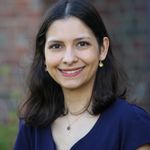Building a Better Boston
Behind the scenes at Boston City Hall, BU PhD candidates are solving problems small and big
Behind the scenes at Boston City Hall, BU PhD candidates are solving problems small and big
The late Thomas M. Menino once characterized Boston—where he served as mayor from 1993 to 2014—as a “city that works for all our people, not just some of them.” Achieving that is a herculean task that includes mundane services like filling potholes and clearing snow and bigger projects that advance justice and spur joy—all of which requires a lot of creative thinkers and subject matter experts.
If you walk through Boston City Hall, chances are you’ll bump into someone from BU working on the front lines, building a city that works for all. In recent years, several PhD candidates from BU have accepted fellowships or internships with the City of Boston, forming a brain trust and working on many of the city’s most ambitious initiatives. Some come from disciplines not traditionally thought of as feeders for public service—like history and sociology—but end up contributing in significant ways, many times picking up a love for municipal government that sticks. And many of those students arrive at City Hall via BU’s Initiative on Cities (IoC).
 “We recruit people who are highly entrepreneurial, very self-directed to move at a swift pace, to encounter barriers and find their way around them, and are very humble and relationship oriented,” says Katharine Lusk, codirector and founding executive director of the IoC, which has sent four PhD candidates from CAS—as well as many undergraduates—to Boston City Hall as fellows or interns since 2014. “What’s so exciting about this is that we’re attracting a much wider diversity of disciplines into City Hall than some other programs, and perhaps people who wouldn’t find it on their own.”
“We recruit people who are highly entrepreneurial, very self-directed to move at a swift pace, to encounter barriers and find their way around them, and are very humble and relationship oriented,” says Katharine Lusk, codirector and founding executive director of the IoC, which has sent four PhD candidates from CAS—as well as many undergraduates—to Boston City Hall as fellows or interns since 2014. “What’s so exciting about this is that we’re attracting a much wider diversity of disciplines into City Hall than some other programs, and perhaps people who wouldn’t find it on their own.”
Building a Pipeline to City Hall
By 2050, nine out of every ten Americans will live in or around cities, a 30 percent estimated rise in a century. This increased urbanization has led municipal governments to think more deeply about how cities can best serve their current and future residents—and do so with environmental sustainability in mind. Naturally, cities have for years looked to universities for insights, as well as short-term infusions of student workers, interns, and fellows to help research and implement data-driven programs. That’s certainly been true in Boston, where the population grew by more than nine percent between the 2010 and 2020 censuses. Lusk helped build the pipeline between local universities and Boston City Hall, first as an intern during her graduate studies at Harvard and in 2014 as founding executive director, with the late Menino (Hon. ’01), of the IoC. Their goal was simple: bring fresh energy and talent into City Hall.
“Paid fellowships are one of the proven ways to do that,” Lusk says. “The confluence of personal experience, the mayor’s enthusiasm, and this sense that BU has this amazing talent pool… meant that one of the first things we did was to start a summer program,” including a dedicated BU graduate student fellowship in the Mayor’s Office of New Urban Mechanics (MONUM). In the years that followed, BU undergraduate and graduate students from CAS have served as fellows and interns at Boston City Hall through the IoC, the Graduate Program in Urban Biogeoscience and Environmental Health (BU URBAN), and the Center for Humanities, in addition to other university departments and programs.

Taylor Cain (GRS’20) previously directed the Mayor’s Housing Innovation Lab at the City of Boston, which explores new ways of increasing housing affordability, and she now serves as a senior policy adviser at the Boston Housing Authority. But that was not the career trajectory she imagined she’d take while pursuing a PhD in sociology. Then she spent the summer of 2017 as the IoC’s MONUM Summer Fellow, working with the City of Boston’s transportation department. Despite growing up with a mom who worked in local government in Sacramento, Calif., Cain didn’t expect that to be her future as well. She wanted to be a sociologist, after all, and she wondered if there was a place in city government for her. Instead, Cain found a culture that embraced her skills and offered her the chance to learn from a broad array of people. “That made me excited,” she recalls, “and it made me want to come back.”
Cain was tasked with creating an equity framework with the Boston Transportation Department (BTD) for Vision Zero, a plan seeking to eliminate traffic fatalities. In meeting with both BTD staff and community groups, Cain identified a pressing need: an approach to decision-making and planning that centers the experiences of people. Her training as a qualitative researcher served her well in that fellowship, as well as the role she now holds at BHA.
“I did ethnographic field work for my dissertation, and that involves spending a lot of time in communities trying to understand not just what is happening, but how something is happening, and what are the different ways that people are making meaning of seemingly mundane things,” Cain says. “I actually think that type of framework is really helpful in a space like city government which is filled in a lot of ways with lots of seemingly mundane activities that have really big impacts and consequences.”

Boston was a pioneer among cities that are “thinking big and dreaming big, being creative and innovative,” according to Maddie Webster (GRS’23), a PhD candidate in the American & New England Studies Program who specializes in Boston history. But innovation hasn’t long been thought of as within the wheelhouses of cities. “This was something that happened in the private sector, in think-tanks, and maybe at the federal government level,” Webster adds. “Cities were the machines trying to make sure the sidewalks are okay, and make sure that we have a good tax base.” In her full-time role as a program manager for MONUM, however, Webster is able to connect big, history-informed thinking with the city’s role in maintaining sidewalks—literally. Webster has dived deeply into an obscure, 19th-century Boston law governing the maintenance of public sidewalks that pass over privately owned basements. According to that law, the owner of such a property is responsible for maintaining and repairing the sidewalks that cover their basement rooms—known as “areaways”—a responsibility Boston has historically found difficult to enforce. Since coming to City Hall in July 2022, Webster has been working to better understand the law, how it can be enforced or revised, and its implications for both building owners and the City of Boston.
“I am the areaways person now for the city,” says Webster, who worked as a research assistant in the IoC and completed a yearlong fellowship with the Boston Public Library’s Norman B. Leventhal Map & Education Center before joining MONUM. “I am the person doing the legal research. I’ve been doing the historical research. I’ve been doing the mapping [of all the areaways in Boston]. We need to figure out a way to work with property owners to make sure that they abide by the city ordinances and actually maintain their sidewalks.”

Through a public policy fellowship provided by the Rappaport Institute for Greater Boston, BU URBAN PhD candidate Claudia Diezmartínez (GRS’27) has been working with the City of Boston’s Environment Department to implement the city’s pledge to become carbon-neutral by 2050. Specifically, Diezmartínez looks at the social, health, economic, and racial justice implications of decarbonization efforts—work that incorporates aspects of her own academic research, some of which has been supported by the IoC. Diezmartínez’s Rappaport Fellowship ended in August 2022, but she was asked to stay on in a part-time capacity to engage with environmental justice leaders, residents, and building owners around the development of regulations. Where she might have defaulted toward continuing in academia after graduation, Diezmartínez’s experience at City Hall has “proved that a career in public service is also a good opportunity for me,” she says.
A Life Changing Experience
Whether or not a BU student chooses to remain in local public service after their internship or fellowship, Lusk says such an experience is valuable. Her own time at City Hall—especially while working under Mayor Menino—changed her life indelibly by demonstrating how cities can change the course of residents’ lives for good.
“Some people will go work in government, love it, and stay,” she says. “It’s equally important that people go and have firsthand experience and exposure to government if they care about policy.” That experience can stay with them even if they remain in academia. “They’re much more insightful about what the real problems are about, the role of community, and the importance of translating research findings for policymakers in a way that’s actionable and timely.”